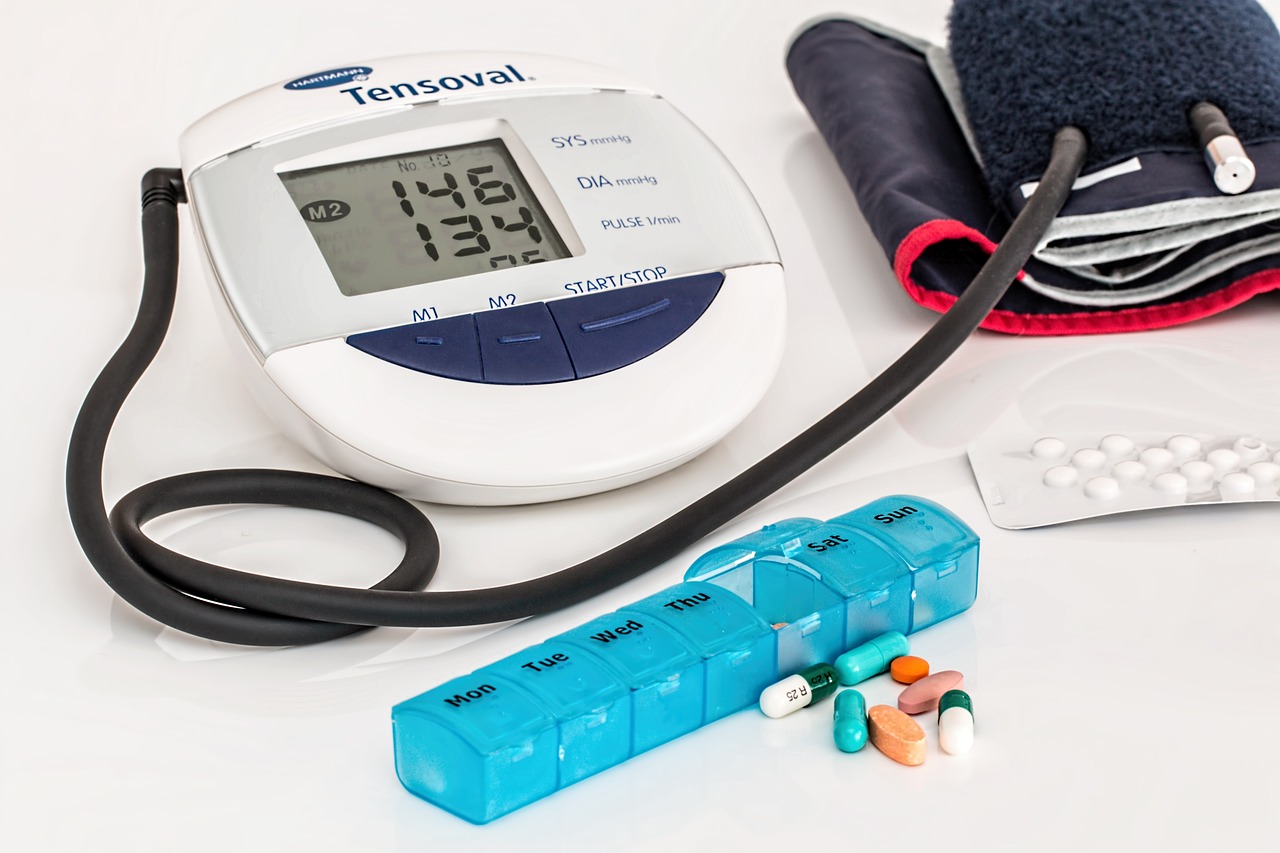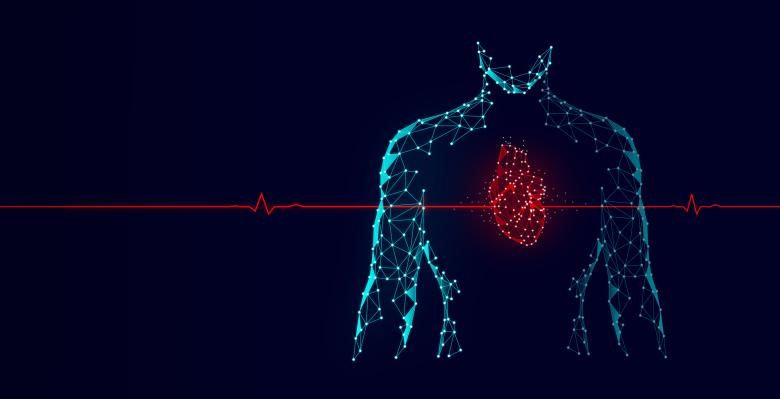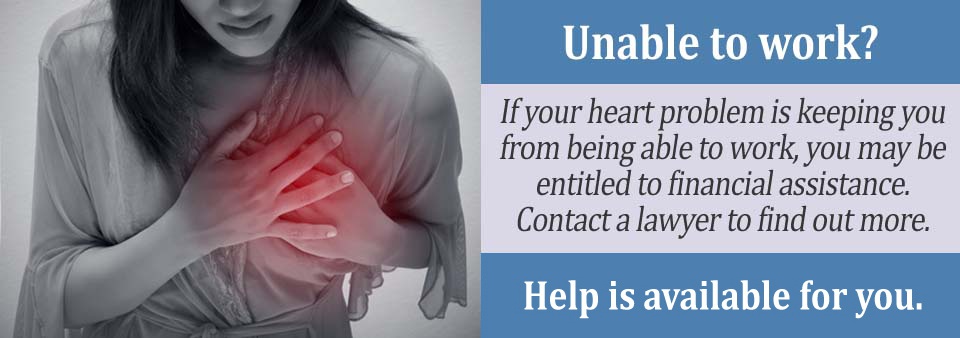Yes, heart disease is a considered a disability by the Social Security Administration (SSA). However, to be approved for disability benefits you must meet specific medical criteria that are required by the SSA.
You will also need hard medical evidence and supporting documentation that verifies your claim and the severity of your condition so you can be awarded monthly benefits for your heart condition.
What Is Heart Disease?
Heart disease is a term that is used to describe several different types of heart conditions. Some of the heart conditions referred to by the term “heart disease” include the following: Heart Attack (Myocardial Infarction), Coronary Artery Disease (CAD), Heart Valve Disease, Heart Muscle Disease (Cardiomyopathy), Heart Failure (a.k.a., Congestive Heart Failure), and Abnormal Heart Rhythms (Arrhythmia).
term “heart disease” include the following: Heart Attack (Myocardial Infarction), Coronary Artery Disease (CAD), Heart Valve Disease, Heart Muscle Disease (Cardiomyopathy), Heart Failure (a.k.a., Congestive Heart Failure), and Abnormal Heart Rhythms (Arrhythmia).
Heart Valve Disease. Heart valve disease is one type of heart disease that occurs when one of the four valves that open to allow blood to pass through the heart, don’t open or close correctly. This improper opening and closing of the heart’s valve(s) results in the body’s blood flow being interrupted. Sometimes, this heart valve defect can happen at birth which is referred to as Congenital Heart Disease.
Heart Attack. Heart attacks, also known as Myocardial Infarction, occur when the body’s arteries that lead to the heart become blocked and, thereby, disrupt the blood flow to the heart. Oftentimes, a heart attack may be the first symptom of heart disease.
Coronary Artery Disease (CAD). CAD is the most common type of heart disease. According to data released by the Centers for Disease Control and Prevention (CDC) in October 2022, approximately 20.1 million adults (20 years-old and older) were reported to have CAD in the United States. This number is roughly 7.2% of the U.S. population. CAD occurs when the body’s coronary arteries have a difficult time supplying the heart with an adequate amount of blood, nutrients, and oxygen. This struggle the coronary arteries face comes from cholesterol build ups in the arteries that make it harder for blood to pass through them. Physical inactivity, smoking tobacco, eating unhealthy, and being overweight are some of the most common risk factors for developing CAD. <strong>Is coronary artery disease (CAD) a disability?</strong> CAD can be considered a disability if it becomes severe enough to prevent people from being able to work full-time for at least the next 12 months from the time during which they apply. In other words, patients with heart diseases like CAD may automatically qualify for disability if they are no longer able to continue working.
 Heart Muscle Disease. Heart muscle disease, also known as Cardiomyopathy, is another type of heart disease. Heart muscle disease happens when the heart muscle becomes stiffer and enlarged which prevents it from being able to pump blood away from the heart. This can sometimes result in blood pooling in the lungs, and can progress into heart failure.
Heart Muscle Disease. Heart muscle disease, also known as Cardiomyopathy, is another type of heart disease. Heart muscle disease happens when the heart muscle becomes stiffer and enlarged which prevents it from being able to pump blood away from the heart. This can sometimes result in blood pooling in the lungs, and can progress into heart failure.
Heart Failure. Heart failure, also known as Congestive Heart Failure, is another type of heart disease that happens when stiffness in the heart inhibits it from being able to adequately pump blood throughout the body.
Abnormal Heart Rhythms. Abnormal heart rhythms, also known as Arrhythmias, is a condition that is yet another type of heart disease. Abnormal heart rhythms bring about a fluctuation in one’s normal heartbeat while they are resting. These abnormal heart rhythms (a.k.a., arrhythmias) can be life-threatening if they are left untreated.
Is Heart Disease A Disability?
So, is heart disease a disability? Yes, the Social Security Administration (SSA) considers heart disease to be a disability. To be awarded disability benefits for heart disease, you must meet the criteria of one of the listings in the Social Security Administration’s (SSA) Blue Book. Heart disease is listed in the Blue Book under Section 4.00 – Cardiovascular System.
In addition to meeting the Blue Book's criteria, you will also need to provide enough medical evidence and supporting documentation that highlights how your heart disease is a disability. You will need lab reports, test results, imaging reports, physician exam notes, and any surgical notes. Documentation and supporting medical evidence are essential to the success of your disability claim.
Types of Heart Disease That Qualify for Disability Benefits
There are many kinds of heart disease. There are several different heart conditions that qualify for disability benefits just so long as you have the supporting documentation. Among those conditions that may qualify for disability include:
- Chronic congestive heart failure
- Ischemic coronary heart disease
- Recurrent arrythmias
- Symptomatic congenital heart disease
- Aneurysm of aorta or major heart branches
- Chronic venous insufficiency
- Peripheral arterial disease
- Heart transplant
Your physician can help you determine which listing your heart condition would qualify under. As an example, if you had a heart transplant you will need notes from the cardiologist and the surgeon.

How To Get Disability Benefits for Spinal Stenosis
To qualify for disability benefits, your heart condition must meet the criteria of a listing. Your physician or disability attorney can help you determine which listing you may qualify using.
As an example, coronary artery disease is usually evaluated using the ischemic heart disease listing, but it can be evaluated using the listing for congestive heart failure. Most claimants with heart disease have their claims evaluated using the listing for ischemic heart disease or chronic heart failure.  Most people who have suffered a heart attack are evaluated through the listing for ischemic heart disease because of an underlying diagnosis of coronary artery disease.
Most people who have suffered a heart attack are evaluated through the listing for ischemic heart disease because of an underlying diagnosis of coronary artery disease.
You will need to provide hard medical evidence, including test results that confirm the diagnosis. Any surgical reports and treatment records will also be necessary in the claims approval process.
Get Help with Your Spinal Stenosis Disability Claim
If you are unable to work because of heart disease a disability attorney can help you maneuver the claims process. Your lawyer may help you gather the supporting evidence and documentation your claim needs to prevail.
According to the SSA, claimants who are represented by an attorney may be more likely to be awarded disability benefits. Disability attorneys work on a contingency basis, so they do not require payment upfront. Instead, your lawyer will be compensated when you win your claim and are awarded disability benefits. Complete the Free Case Evaluation Form today.
Additional Resources
- Can I Continue Working After A Heart Attack?
- Heart Valve Disorder and Social Security Disability Benefits
- High Cholesterol and Social Security Disability
- How Can Heart Failure Qualify For Disability?
- How to Determine What Heart Problems Qualify for Disability?
- What Heart Conditions Qualify for Social Security Disability?
- What Conditions Automatically Qualify For Disability (Updated for 2023)?